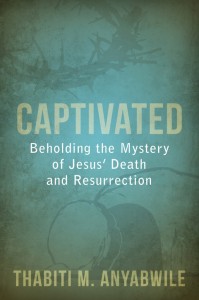Critique My Sermon on Wrath
 GOD’S WRATH FLOWS FROM HIS LOVE
GOD’S WRATH FLOWS FROM HIS LOVE
(a sermon based loosely on Romans 1:18-32, delivered at Hyde Park on 9/22/13)
The topic for today is wrath. More specifically, the role of God’s punishment in understanding the gospel. This is a topical message, and I hope that you will bear with my ramblings, listen critically, and judge for yourselves whether or not I am being faithful to the witness of Scripture.
The gospel is summarized by John 3:16: “For God so loved the world that he gave his one and only Son, that whoever believes in him shall not perish but have eternal life” (Jn 3:16) The gospel is good news of love and life. But there’s a flipside to that in certain gospel presentations, that if you reject the good news, there will be “hell to pay.” Sometimes that flipside becomes the main story. As in that famous sermon by Jonathan Edwards, “Sinners in the Hands of an Angry God,” which depicts the non-believer dangling over a pit of hellfire, held up by only a spider’s web which can break at God’s whim. The message is that, unless and until we believe in Jesus, we are the objects of God’s wrath. ”For God was so ticked off at the world that he gave his one and only Son…” Now some people will say that the Church has gotten too soft, that we have become morally lax and ineffective in our witness because we’ve stopped confronting people with their sin and no longer warn them about God’s wrath. And others will say that we should stop up talking about wrath altogether, because it gives an ineffective and misleading picture of what the gospel is about.
Critique My Fourth Deuteronomy Sermon on…
 …OBEDIENCE, a dreaded cringe-worthy word! In the 2011 NIV, the word “obey” occurs 206 times, and “obedience” 38 times. Daniel Block (OT scholar who spent 12 years studying Deuteronomy) explains the place and importance of the Law (Torah):
…OBEDIENCE, a dreaded cringe-worthy word! In the 2011 NIV, the word “obey” occurs 206 times, and “obedience” 38 times. Daniel Block (OT scholar who spent 12 years studying Deuteronomy) explains the place and importance of the Law (Torah):
The ancients never had the Law. Without the Law they felt the following:
- The gods are angry with me.
- My sin has caused the anger of the gods.
- I must do something to placate the gods’ wrath.
My Personal Theology of Intercultural Ministry
 After reading some of the comments on this site I do agree that the interactions that take place are perfect material for a psychologist to analyze. Sometimes we are talking through or above or below each other, and there is a lot of miscommunication. Our illocutionaries and perlocutionaries don’t always add up. It made me think of the great need we have for intercultural studies and so I wanted to share a short paper I wrote about it recently. The class was called Theology and Practice of Intercultural Ministry.
After reading some of the comments on this site I do agree that the interactions that take place are perfect material for a psychologist to analyze. Sometimes we are talking through or above or below each other, and there is a lot of miscommunication. Our illocutionaries and perlocutionaries don’t always add up. It made me think of the great need we have for intercultural studies and so I wanted to share a short paper I wrote about it recently. The class was called Theology and Practice of Intercultural Ministry.
Captivated
 Look! Captivated: Beholding the Mystery of Jesus’ Death and Resurrection by Thabiti Anyabwile was a series of Easter sermons. Like the Bible that implores us to take a long look at Christ (Isa 40:9; Ps 34:8; Jn 1:29; Mt 11:29), Anyabwile’s book (95 pages) compels us to stare into the meaning/mystery of the cross and resurrection. The five chapters are five incisive questions that help us behold Christ:
Look! Captivated: Beholding the Mystery of Jesus’ Death and Resurrection by Thabiti Anyabwile was a series of Easter sermons. Like the Bible that implores us to take a long look at Christ (Isa 40:9; Ps 34:8; Jn 1:29; Mt 11:29), Anyabwile’s book (95 pages) compels us to stare into the meaning/mystery of the cross and resurrection. The five chapters are five incisive questions that help us behold Christ:
- Is There No Other Way?
- Why Have You Forsaken Me?
- Where, O Death, Is Your Victory?
- Why Do You Seek the Living among the Dead?
- Do You Not Know These Things? Continue reading →
What if God loves Esau?
 During my arranged marriage process, someone asked my wife, “Do you want to marry a man like Jacob or like Esau?” My wife said Jacob, of course. And so I was deemed her “Jacob”. I suppose my wife didn’t realize I am probably more like Esau than Jacob, but that’s a story for another article. Last year I began reading some of the classic books by authors who have contributed much to the kingdom of God, due to my participation in two different cohort study groups. I am reading a range of authors from Dietrich Bonhoeffer and Brother Lawrence to John H. Armstrong, Lesslie Newbiggin and Henri Nouwen. I’ve also read numerous un-fundamentalist bloggers, such as Benjamin Corey and Rachel Held Evans. These authors challenged me to expand and refine my notion of “church”, the love of God and the grace of God. Through all of this reading, the Holy Spirit impressed various words on me, and guided me through hundreds of Scriptures.
During my arranged marriage process, someone asked my wife, “Do you want to marry a man like Jacob or like Esau?” My wife said Jacob, of course. And so I was deemed her “Jacob”. I suppose my wife didn’t realize I am probably more like Esau than Jacob, but that’s a story for another article. Last year I began reading some of the classic books by authors who have contributed much to the kingdom of God, due to my participation in two different cohort study groups. I am reading a range of authors from Dietrich Bonhoeffer and Brother Lawrence to John H. Armstrong, Lesslie Newbiggin and Henri Nouwen. I’ve also read numerous un-fundamentalist bloggers, such as Benjamin Corey and Rachel Held Evans. These authors challenged me to expand and refine my notion of “church”, the love of God and the grace of God. Through all of this reading, the Holy Spirit impressed various words on me, and guided me through hundreds of Scriptures.
Continue reading →
The Necessity of Penal Substitution (Part 2)
 In part 1 of this series, I presented evidence from Scripture for Penal Substitution as a primary view of what happened at Calvary.
In part 1 of this series, I presented evidence from Scripture for Penal Substitution as a primary view of what happened at Calvary.
But what about other theories of the atonement? Aren’t they more plausible and less offensive to the dignity of man? Here we review two other theories of the atonement to see if they are better suited to explain what happened on the cross. These two other theories are called the Ransom Theory and the Christus Victor Theory.
Tradition
The first alternative theory of the atonement is called the “Ransom Theory”. This is “the view, developed by (the theologian) Origen, that Christ’s death was a ransom paid to Satan since he held mankind in bondage.”[12] In other words, God sent Jesus Christ as a ransom to pay to Satan in order that Satan would release human beings from his grasp. The blood of the Lamb of God therefore was the “currency” that was paid out to the devil for us.

Last 30 Comments